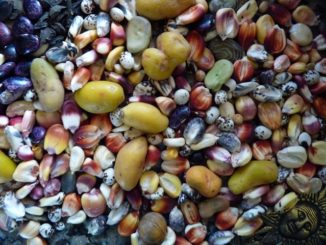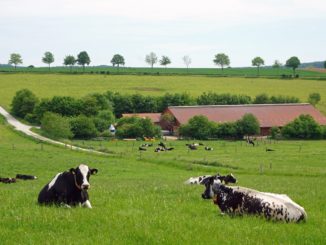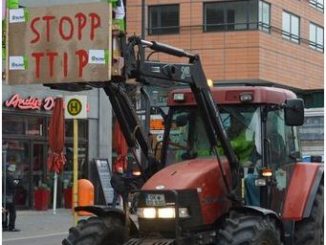La Via Campesina has expressed its shock and dismay at the position taken jointly by the leaders of the publicly-funded UN Food and Agriculture Organisation (FAO) and the European Bank for Reconstruction and Development (EBRD). They have been calling on governments “to embrace” the private sector and rely on it to increase world food output.
In an aggressively-worded article that appeared in the Wall Street Journal (WSJ) on September 6, FAO director general Jose Graziano da Silva and EBRD president Suma Chakrabarti jointly urged greater private sector investment, glossing over the land grabbing that goes with it. Responding with measured feeling, La Via Campesina’s Nico Verhagen challenged the institutions’ call to “double investment in the land itself” and the pretence that capital could be efficient or dynamic. The most hurtful assumption made by da Silva and Chakrabarti was that peasants are in some way “holding back” agricultural development!
The WSJ article appeared ahead of a conference in Istanbul on September 13, which brought together corporate agribusiness decision makers to discuss “the key role of the private sector in feeding the world.” In a monstrous distortion da Silva and Chakrabarti describe Russia, Ukraine and Kazakhstan as “the agricultural wastelands of the 1990s” but which had been somehow redeemed by the private sector.
The WSJ article suggests that foreign investment in these countries now generates: “…15% of the world’s grain exports.” It goes on to suggest that they could supposedly double their harvests with “…appropriate policies.”
The lie flies in the face of national statistics from these countries: for instance small farms, especially women, account for more than half Russia’s agricultural production while only occupying a quarter of the agricultural land, explains Verhagen. Some 55% of Ukraine’s agricultural output comes from just 16% of the land farmed by peasants while in Kazakhstan small farms make up more than half the productive land and account for 73% of agricultural production.
“The fact is that these countries are fed by their peasants and small farmers. And this is true the world over,” Verhagen declares. This has been the case in official figures from all over the world: “…peasant farming is shown to be more efficient than large-scale agribusiness.”
The FAO director general’s position is untimely, Verhagen added. “It is particularly troubling for this to occur after three years of careful, hard work by La Via Campesina and other organisations in constructing the FAO’s voluntary guidelines to protect communities against land grabs.” Years during which da Silva had campaigned for the FAO’s top position and “repeatedly” given reassurances to farmers’ organisations that he would support peasant agriculture if selected.
It does not bode well for 2014, which has been designated the International Year of Family Farming. “We do not need agribusiness,” Verhagen argues. “We need more communities as well as more peasant and indigenous families farming with dignity and respect.”





